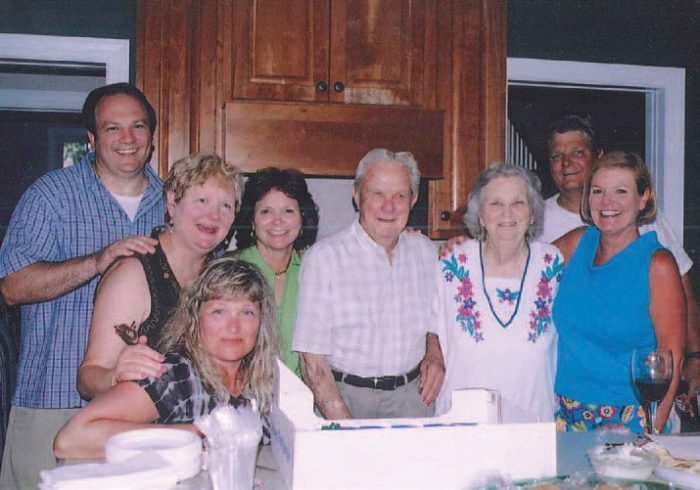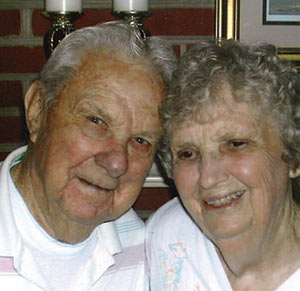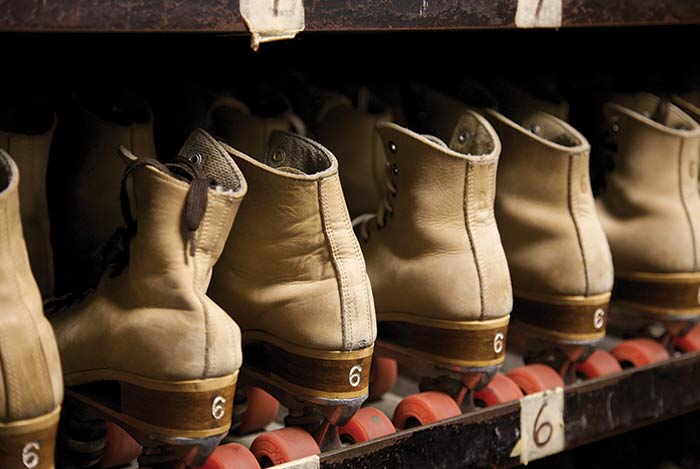
I must go down to the seas again, to the lonely sea and the sky. And all I ask is a tall ship and a star to steer her by.
John Masefield’s classic poem “Sea Fever” might well have been the mantra for the life of Sullivan’s Island’s Edward Theodore Grisillo, who died in August at age 99. According to Msgr. Lawrence B. McInerny, at the time of his death, Grisillo was the oldest living parishioner at Stella Maris Roman Catholic Church.
The son of the lighthouse keeper on North Island at Georgetown, young Edward Grisillo truly lived for the water. When he was of age, he joined the U.S. Lighthouse Service, serving with that agency until it merged with the Coast Guard in 1939. He continued on with the Coast Guard, eventually retiring as a senior chief petty officer.

While in the Coast Guard, his ship was passing through the Panama Canal when he received a Red Cross message alerting him to daughter Linda’s birth. Because of the nature and duration of his mission, Grisillo knew that he would not see his first child for another eight months. So he and his shipmates raised glasses of rum and Coke to welcome her into the world.
During the years in the Coast Guard, Grisillo traveled to ports in Boston and Miami and to the shores of Iceland and Greenland. His family also was posted to Oregon for several years, when he participated in numerous high-risk rescue operations at sea. But his heart remained in Charleston, and, when he returned home, he and his brother worked together to build his family a house on the then sparsely populated Sullivan’s Island. He stayed close to his first love by taking a position as a ship quality assurance inspector for Civil Service and for Global Associates.
Over time, the Grisillo clan grew to six children, all raised in that same small house their father and uncle built at the shore.
Grisillo’s youngest son, John, recalled that his father was always “very disciplined, very frugal and very accountable: “When Dad was in the Coast Guard, he would send all his pay home to support the family. Throughout his life, he always lived beneath his means, but we kids never wanted for anything.”
Raised Episcopalian, Ed Grisillo wedded Mary, the sister of one of his shipmates, and agreed to raise their children in her Roman Catholic faith. He sent all of his children to Bishop England High School and attended Sunday Mass regularly. At the age of 80, he approached Msgr. McInerny about taking classes to become a Catholic. The prelate was stunned. He had known the Grisillos all his life, had gone to school with one of the daughters and had seen him at Mass so regularly that he had “just assumed that he was already a member of the church!”
During the last years of Grisillo’s life, when he and wife Mary – who survives him at age 93 – were largely homebound, the monsignor would bring Holy Communion to them at their home and chat about how the crabs were running.
After one visit, the monsignor left the house and was shocked to see water flooding the yard and running under the structure. Afraid that a pipe had burst, he raced back in to tell Edward who, he remembers, leapt from his chair, waved his cane and exclaimed in anguish, “Oh, my water bill, my water bill!”
It turned out that local firefighters had simply flushed the hydrants in the area, creating a temporary “swamp,” and Grisillo was much relieved.
Family and friends agreed that Grisillo retained a sharp and active mind well into his 90s, even keeping up his tradition of baking his signature fruitcakes each year for Christmas.
In the words of Msgr. McInerny, Grisillo represented one of the last of the “original” Sullivan’s Island residents, “hardy folk who were hardworking, frugal, modest people with modest incomes and modest homes but great integrity and pride.”
Daughter Linda recalled visiting her father in hospice with her mother. Out of the blue, she said, he kissed her and said ‘I love you, grasshopper!’ a pet name he had never before used. She thought little of it at the time, but, after his death, she was riding her golf cart in the country when three grasshoppers landed on her arm.
“Nothing like that had ever happened before,” she recalled. “I knew it had to be Pops!”





Leave a Reply